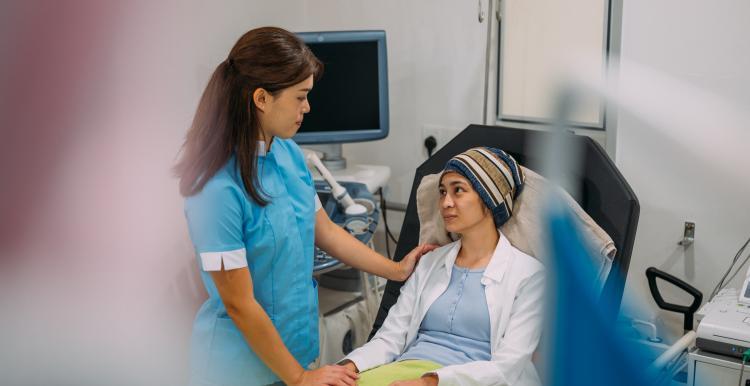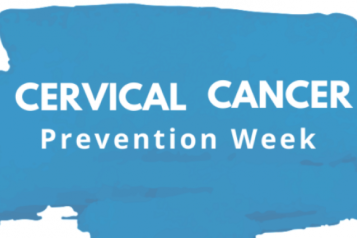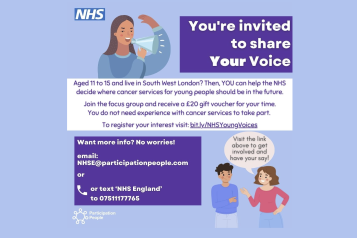Healthwatch England article: The hidden wait for cancer care

The Observer article was published on Saturday 29 July, drawing on both local Healthwatch and commissioned research. The article paints a worrying picture that suggests there is still much to do to ensure cancer is flagged at the earliest opportunity and that pathways to diagnosis and treatment are as smooth as possible.
One in two people will develop cancer during their lifetime in the UK. And for most cancers care can only begin with a referral from GP to hospital teams for tests and treatment.
The NHS Long Term Plan aims to improve cancer diagnosis and treatment, and more recently NHS England identified that short waiting times not only lead to better outcomes and fewer complications but are important in terms of easing patient anxiety and improving experience too.
However, Healthwatch research paints a worrying picture that suggests there is still much to do to ensure cancer is flagged at the earliest opportunity and that pathways to diagnosis and treatment are as smooth as possible.
Our research also aims to help the government and NHS leaders understand the importance of seeing the person behind the cancer, and that small changes can make a big difference to people at an incredible difficult time in their lives.
Key Findings
-
Almost half, 45%, of respondents are not referred for suspected cancer at their first appointment.
-
Over one in four, 28%, wait up to a month after their first appointment to be told they are being referred.
-
And almost one in six, 16%, wait over a month after their first appointment.
-
Around one in seven, 14%, are still waiting for referrals to be confirmed over a month after the decision to refer.
-
And one in 10 cancer referrals don’t directly progress to a hospital appointment, with some referrals either rejected, lost, or otherwise not booked.
Who was interviewed?
We conducted a poll with over 2,000 adults in England between September and October last year to understand people’s experiences of getting a GP practice referral.
We received a further 1,825 responses to the survey via our local Healthwatch network. This analysis focuses on 385 adults who were referred or expected to be referred for suspected cancer.
Official NHS data shows that targets for patients to attend their first hospital appointment within two weeks have not been hit since May 2021. And targets for first treatment within two months have been missed since December 2015.
So, we know that people referred to hospitals with suspected cancer are not being diagnosed or treated quickly enough.
People’s experiences before referrals are made
There is a blind spot in national data around people’s experience of getting a referral to hospital. And while some waiting time is to be expected, there must be a greater focus on understanding people’s full journey, from the first time they notice symptoms to getting treatment.
Our findings cover the stages of the referral blind spot, including how long it can take to get a GP appointment and how long it can take people to get a referral before they even join long wait lists.
Hidden waiting list
Of the 334 respondents who got a cancer referral, just over one in two were referred at their first appointment. For almost one in six, it took a month or longer between their first GP practice appointment about their symptoms and being told they were going to be referred.
In some cases, the GP team wanted to try other treatment or medication first. But in other cases, the reasons for referral delays are more concerning, such as people not feeling their condition was taken seriously, stating the appointment was too rushed, or flagging that they struggled to make themselves heard or understood.
Some participants even suggested that referral delays were down to a lack of specialist knowledge in primary care. This point echoes feedback to the call for evidence for the government’s 10-year cancer plan, where respondents felt teams could benefit from more training on the signs and symptoms of cancer.
Other respondents to our survey mentioned their lack of personalised access choices as the reason for long waits for a referral. For example, in cases that required inspection of skin lesions, appointments over the phone were highlighted as being unacceptable.
For all conditions, long waits for referrals to hospital can cause frustration and confusion. But for cancer patients, any delay in referrals and diagnosis can put people's lives at risk. We know that early identification of cancer can save lives, but our research shows that too often poor processes and disjointed communication between NHS teams in general practice and hospitals can lead to referrals getting lost, causing serious delays. Healthcare leaders need to address delays in progressing referrals, particularly for cancer. This should include acting on plans to improve GP access so that people can get timely diagnosis and recruiting more care navigators who can ensure life-saving cancer referrals are not lost and people know where they are in their wait for appointments. People need to be given clear information about their referral process and a point of contact they can approach while they wait.


